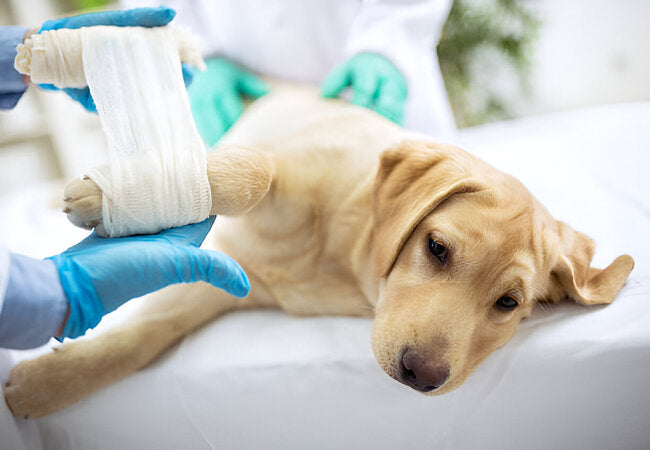2025 Vet Travel Care: What to Do if Your Pet Gets Sick or Injured on Vacation 🐾🏥

In this article
2025 Vet Travel Care: What to Do if Your Pet Gets Sick or Injured on Vacation 🐾🏥
By Dr. Duncan Houston BVSc
Hello, I’m Dr Duncan Houston BVSc, veterinarian and founder of Ask A Vet. Travel should be full of joy—not stress—so here’s your go-to guide for keeping your pet safe, calm, and cared for wherever you roam. 😊
1. Before You Go: Plan & Prepare 📦
- Emergency vet directory: Research 24/7 clinics at your destination and save their contacts in your phone.
- Vet consult pre‑trip: Ask your regular vet for travel-ready meds (anti-nausea, pain relief) and record details.
- Travel first‑aid kit: Include bandages, antiseptic wipes, muzzle, tweezers, instant ice pack, digital thermometer—use AVMA’s checklist.
- Document pack: Carry copies of medical records, vaccinations, microchip info, and med list—paper and digital.
- Familiar items: Take your pet’s favorite toy or blanket to reduce stress.
2. Signs Something’s Wrong 😟
Know the warning signals. These may mean immediate vet attention is needed :
- Lethargy or weakness
- Vomiting, diarrhea, or constipation
- Visible injury, bleeding, swelling
- Labored breathing or coughing
- Limping, difficulty standing
- Seizures or collapse
- Abnormal gums (pale, blue)
- Discharge from the eyes, nose, and ears
- Excessive thirst or urination
- Ingestion of toxin or a foreign object
3. Minor Illness or Injury — First-Aid & Monitoring 🛠️
3.1 Gastrointestinal Upset
For mild vomiting or diarrhea:
- Fast your pet for ~6–8 hours (adult).
- Offer small amounts of bland food/water.
- If symptoms worsen or include blood, seek vet care.
3.2 Limping or Minor Trauma
- Keep pet calm and rested.
- Use vet-approved pain meds if prescribed pre-trip.
- If limp persists or worsens, schedule a vet visit soon.
3.3 Motion Sickness
Signs include drooling, whining, vomiting, and lethargy.
- Stop the vehicle and let your pet walk if needed.
- Try anti-nausea meds like Cerenia if previously prescribed.
- Gradually desensitize to travel before the next trip.
4. Serious Emergencies — Immediate Vet Care 🚨
If you see:
- Bleeding that won’t stop or deep wounds
- Difficulty breathing
- Collapse, seizures, or severe pain
- Possible toxin ingestion — bring container or photo
- Large animal injury (falls, hits) treat as severe trauma
Then:
- Stay calm and muzzle the dog if in pain.
- Stabilize bleeding with clean pressure; don’t remove soaked bandages.
- Transport in a carrier or on board/sling for back/leg injuries.
- Call ahead so vet prep time is minimized.
5. Transport & Vet Visit Best Practices 🚗
- Use secure crate or harness; never let your pet roam in a vehicle.
- Maintain a calm environment: soft music, shaded, cool interior.
- Reassure the pet as you drive, but minimize interaction to focus on the road.
6. Aftercare & Recovery at Your Stay 🏡
- Keep injured or ill pets rested and confined.
- Follow the vet’s medication and triage instructions exactly.
- Use soft bedding, regulated feeding/rest schedules.
- Monitor temperature, appetite, elimination, and wound healing.
- Use Ask A Vet app for reminders, teleconsults, and product recommendations (e.g., calming chews, wound sprays via Woopf or Purrz).
7. Travel Stress & Motion Prevention 🧘♂️
- Exercise your pet before travel to reduce anxiety.
- Pack calming aids: pheromone spray, familiar blanket/toy.
- Maintain meal/water routines to prevent digestive upset.
8. Preventative Travel Checklist ✅
- Pre-trip vet visit & travel meds
- Emergency clinic list & directions
- Travel‑sized first‑aid kit
- Updated ID/microchip info
- Comfort items, crate & safety harness
- Copies of health records & med list
9. FAQs While Traveling ❓
- Q: Is video vet consult enough?
- A: Telehealth is fine for minor issues, but serious symptoms require in-person care.
- Q: Safe meds to take on trip?
- A: Carry vet-prescribed meds like gabapentin, anti-nausea, pain relievers. Never use human meds without vet approval.
- Q: What about heat stroke?
- A: Move to shade, apply lukewarm water on neck/armpits, avoid ice baths, and go to vet ASAP.
- Q: Will travel insurance help?
- A: Pet insurance or travel add-ons can ease the financial burden—check coverage before leaving.
10. Final Vet Wisdom 🌟
Traveling with your pet is rewarding—but being prepared makes the difference between calm care and crisis. With solid prep, sharp awareness, and Ask A Vet support, you’ll keep your companion safe, calm, and comfortable wherever you go. 🐕✈️
Before your next journey, download the Ask A Vet app—your source for 24/7 advice, meds list management, and vet‑recommended travel products like calming aids, first‑aid essentials, and recovery care kits (Woopf, Purrz). Happy travels! 📱✨






